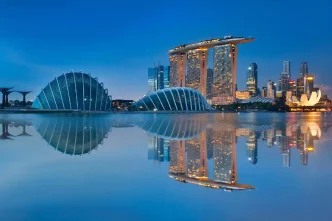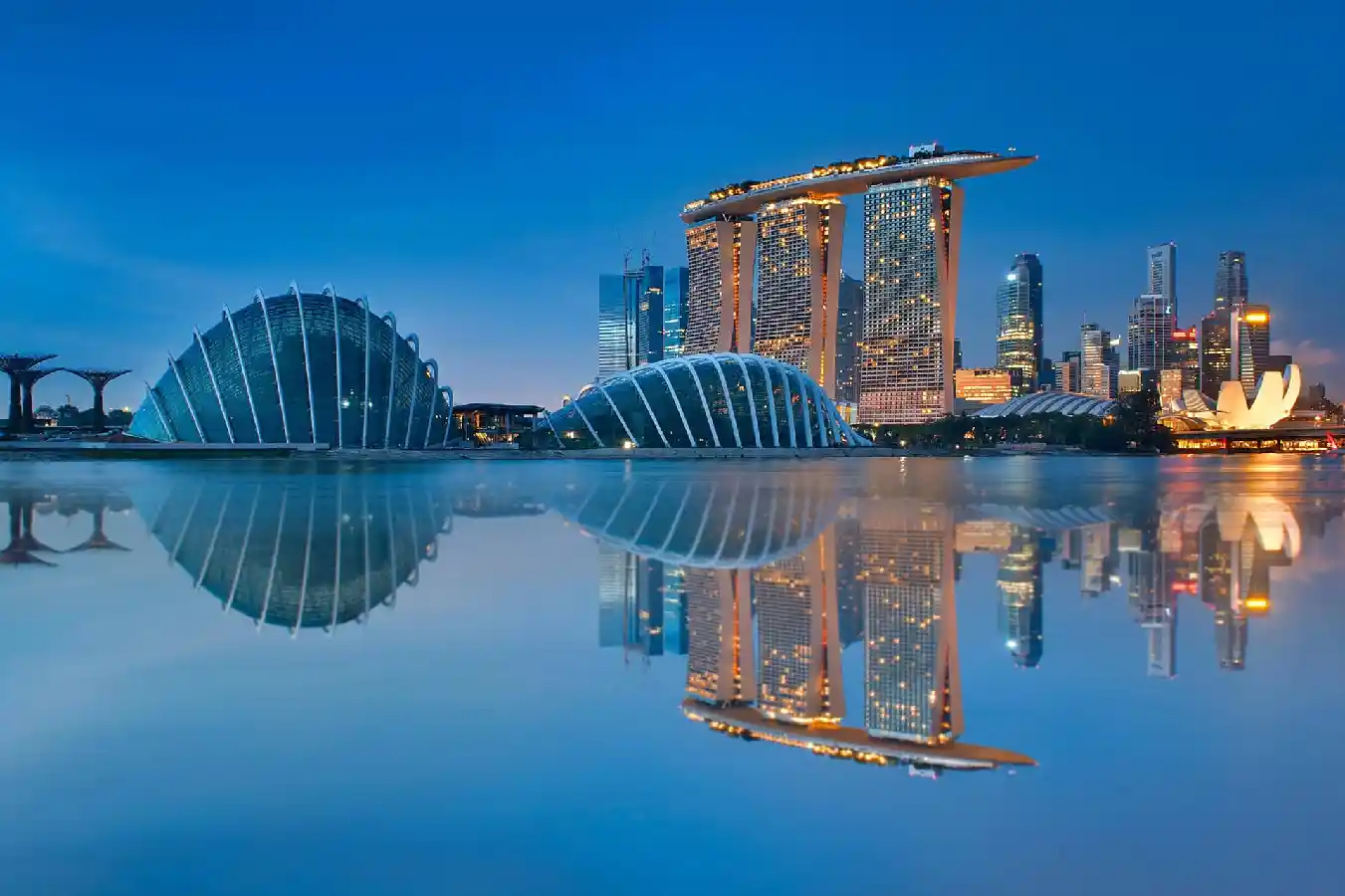Singapore is rapidly establishing itself as a leading financial and philanthropic center in Asia, attracting some of the world’s wealthiest individuals to set up charitable foundations in the city-state. Over the past three years, prominent figures such as American hedge fund billionaire Ray Dalio, Indonesian coal magnate Low Tuck Kwong, and Brazil-born Facebook co-founder Eduardo Saverin have registered foundations here to support a range of causes. This trend, fueled by Singapore’s robust wealth management sector, attractive tax incentives, and strategic location, underscores a broader shift as ultra-rich individuals increasingly channel their wealth into philanthropy alongside financial operations.
A Growing Hub for Global Giving
The latest milestone in Singapore’s philanthropic ascent came on May 5, 2025, with the announcement that the Gates Foundation, one of the world’s largest charitable organizations, will establish an office in the city-state. Founded in 2000 by Microsoft co-founder Bill Gates and his former wife Melinda, the foundation focuses on combating poverty, disease, and inequity globally. Bill Gates, ranked 13th on Forbes’ World’s Billionaires List 2025 with an estimated wealth of US$108 billion, has pledged to donate nearly all of his fortune through the foundation over the next two decades. In a blog post dated May 8, 2025, he wrote: “People will say a lot of things about me when I die, but I am determined that ‘he died rich’ will not be one of them. There are too many urgent problems to solve for me to hold on to resources that could be used to help people.”
Hari Menon, director for South and South-east Asia at the Gates Foundation, highlighted the strategic importance of a Singapore presence. “We believe a Singapore presence will strengthen global health and development partnerships across the South-east Asian region, enhance cross-border collaboration, and reinforce Singapore’s important role in innovation and philanthropy in the region” he said. While operational details are still being finalized, the move signals confidence in Singapore’s growing role as a base for impactful charitable work.
Policy and Incentives Driving Philanthropy
Singapore’s appeal as a philanthropic hub is underpinned by deliberate policy measures and a favorable environment for wealth management. According to the Commissioner of Charities (COC), approximately five new charities have been registered annually under the Grantmaker Scheme over the past three years. This scheme, designed for foundations funded by individuals, families, or institutions, offers relaxed or waived regulatory requirements to encourage charitable giving. Among the recent registrants are the Rao Family Foundation, established by Indonesian gold mining tycoon Jimmy Budiarto and his wife, and the Karim Family Foundation, founded by Bachtiar Karim, chief executive of palm oil firm Musim Mas Holdings, and his wife.
Pauline Tan, principal consultant at Soristic Impact Collective, a consultancy tracking private philanthropy in Singapore, attributes this surge to a combination of factors. “The Republic’s generous tax incentives for charitable giving, the availability of high-quality legal, financial, and philanthropic advisory services, and the stable political and regulatory environment are among the reasons for the growing number of foundations being set up here by both foreigners and locals” she explained. Additionally, Singapore’s proximity to countries in need of aid within South-east Asia makes it a practical base for philanthropists aiming to address regional challenges.
The city-state’s wealth management sector has also played a pivotal role. By the end of August 2024, Singapore hosted 1,650 single family offices—private entities managing the financial affairs of ultra-wealthy families—up from just 400 in 2020. Many of these families, hailing from across the globe, have chosen to establish their philanthropic foundations alongside their financial operations, viewing charity as a natural extension of their presence in Singapore. The Economic Development Board (EDB) actively courts such entities, engaging leading entrepreneurs and innovators to base their operations in the Republic. An EDB spokesperson noted that the board works with individuals and business families to support the local innovation ecosystem through their foundations or family offices.
The Ripple Effect of High-Profile Giving
The arrival of high-profile philanthropists like Bill Gates appears to be inspiring others among the ultra-wealthy to follow suit. Ms. Tan pointed to a growing public expectation for those with significant resources to contribute to society. “There is also a growing public expectation for those with significant resources to give back. With greater media attention, philanthropic giving is becoming part of the journey in life for some of the ultra-wealthy” she said. The visibility of figures like Gates, who has openly committed to donating his wealth, may be creating a cultural shift among the elite, encouraging them to prioritize impact over accumulation.
This trend aligns with broader global movements toward responsible wealth management, where philanthropy is increasingly seen as a moral imperative rather than an optional gesture. In Singapore, the influence of such high-profile commitments could further accelerate the growth of charitable foundations, positioning the city-state as a model for balancing wealth and social good. However, it remains to be seen whether this influx of foundations will translate into tangible outcomes for the region’s most pressing issues, such as poverty and healthcare disparities.
Challenges and Opportunities Ahead
While Singapore’s rise as a philanthropic hub is promising, it is not without challenges. The rapid increase in foundations and family offices raises questions about oversight and the equitable distribution of charitable funds. Although the Grantmaker Scheme eases regulatory burdens to attract philanthropists, ensuring transparency and accountability remains critical to maintaining public trust. If not carefully managed, the concentration of wealth and charitable activity in Singapore could also exacerbate regional disparities, with funds potentially favoring high-profile causes over grassroots needs.
Moreover, the motivations behind this wave of philanthropy warrant scrutiny. While tax incentives and a stable environment are clear draws, some observers question whether all foundations are driven by genuine altruism or if they serve as vehicles for reputation management or financial optimization. Without concrete data on grant disbursements and impact—information that is often not publicly available—such concerns linger. If confirmed, any misalignment between stated goals and actual outcomes could undermine the credibility of Singapore’s philanthropic ecosystem.
On the opportunity side, Singapore’s unique position offers a chance to bridge global wealth with regional needs. South-east Asia faces persistent challenges, from climate vulnerability to educational gaps, where targeted philanthropy could make a significant difference. The Gates Foundation’s focus on global health, for instance, could catalyze partnerships with local governments and NGOs to address diseases like malaria and dengue, which remain prevalent in the region. Similarly, foundations backed by industrial magnates could fund sustainable development initiatives, leveraging their business expertise to tackle environmental degradation tied to industries like mining and palm oil.
A Model for Asia and Beyond?
Singapore’s emergence as a philanthropic hub reflects a broader trend of wealth migration to stable, well-connected financial centers. Yet, it also highlights the city-state’s ability to adapt and innovate in response to global shifts. By blending financial prowess with a commitment to social impact, Singapore is crafting a reputation not just as a place to grow wealth, but as a place to give it away meaningfully. The involvement of globally recognized figures like Bill Gates only amplifies this narrative, potentially drawing more ultra-wealthy individuals to contribute to the region’s development.
As this ecosystem evolves, the balance between attracting wealth and ensuring its positive deployment will be key. For now, Singapore stands at the forefront of a quiet revolution in Asian philanthropy, with the potential to reshape how the ultra-rich engage with the world’s most urgent challenges. Whether this momentum translates into lasting change for South-east Asia and beyond remains an open question, one that stakeholders across the region will be watching closely.















